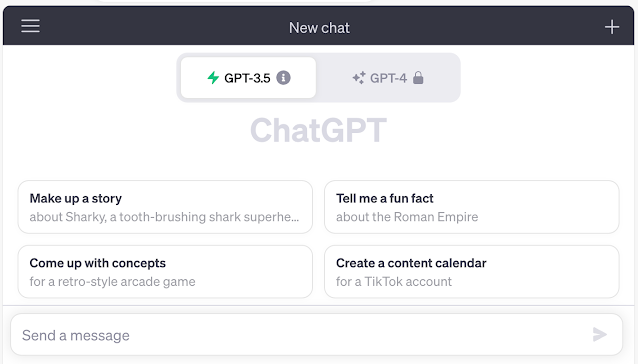Exploring the Pros and Cons of AI-Assisted Science Education
In current evolving landscape of education, especially after covid-19 lockdown period, the use of technology increases in the field of education. These technologies include web-based resources, mobiles, laptops, websites and mobile apps. Recently seen that use of artificial intelligence apps or websites also increases in the field of education. One such application is ChatGPT, a language model that can serve as a virtual tutor and provide information on various subjects, including science. But the question that arises is: Is learning science with the help of ChatGPT good or not? In this article, we dive into the pros and cons of incorporating AI tool like ChatGPT into science education.
The Pros:
1. Accessibility: ChatGPT offers 24/7 accessibility to students who want science knowledge. Which makes it convenient for students to learn science and technology, when they want to learn and when any curiosity comes in their mind related to anything.
2. Instant Answers: Students can get quick and mostly accurate answers to science questions as soon as they hit the button. Therefore, students don't have to wait for next day or class session to get answer.
3. Personalized Learning: Current AI tools like ChatGPT are very intelligent and programmed very well. So, they can adapt to a student's education & learning level and provide explanations according to that level.
4. Supplemental Support: It can serve as a valuable supplement tool to traditional classroom learning and textbooks to enhance science learning of students.
The Cons:
1. Lack of Interactivity: ChatGPT may not fully replace the interactive and hands-on learning experiences provided by school and colleges with the help of experienced teachers, laboratories, practical and in-person classes provide to students.
2. Potential for Misinformation: While ChatGPT is a powerful tool, it can sometimes provide incorrect or incomplete information, which can impact learning. Currently, there is no strong law for authenticity of data provided by any AI tool.
3. Overreliance: There is a risk that students might become dependent on AI tools, which may hinder their independent problem-solving skills.
4. Lack of Structured Tutoring: ChatGPT only provide answer to questions which we ask, also answers depends on students how he asks questions. Teachers provide education as per structured syllabus decided by educational institutions, which is not possible with AI tools.
Learning science education with ChatGPT and similar AI tools can be highly beneficial, if used as supplements to traditional learning methods. They offer convenience, accessibility, and quick answers to science-related queries.
As with any technological advancement, the key lies in striking a balance. Leveraging AI technology for science education is undoubtedly advantageous, but it should complement, not replace, the multifaceted process of scientific exploration, learning and understanding.
In the end, the answer to whether learning science with ChatGPT is "good or not" depends on how it's used and integrated into the broader educational landscape.


%20(1).png)
